In the vibrant world of Nigerian foods, Garri Ijebu is not merely a grocery or pantry item; it is culture! This staple, with its humble origins, has risen to become a symbol of heritage of the Nigerian people. Join us as we embark on an exploration of Garri Ijebu, examining its history, the mode of its preparation, the diversity of its consumption, and the richness of its nutritional profile while debunking some myths and misconceptions along the way.
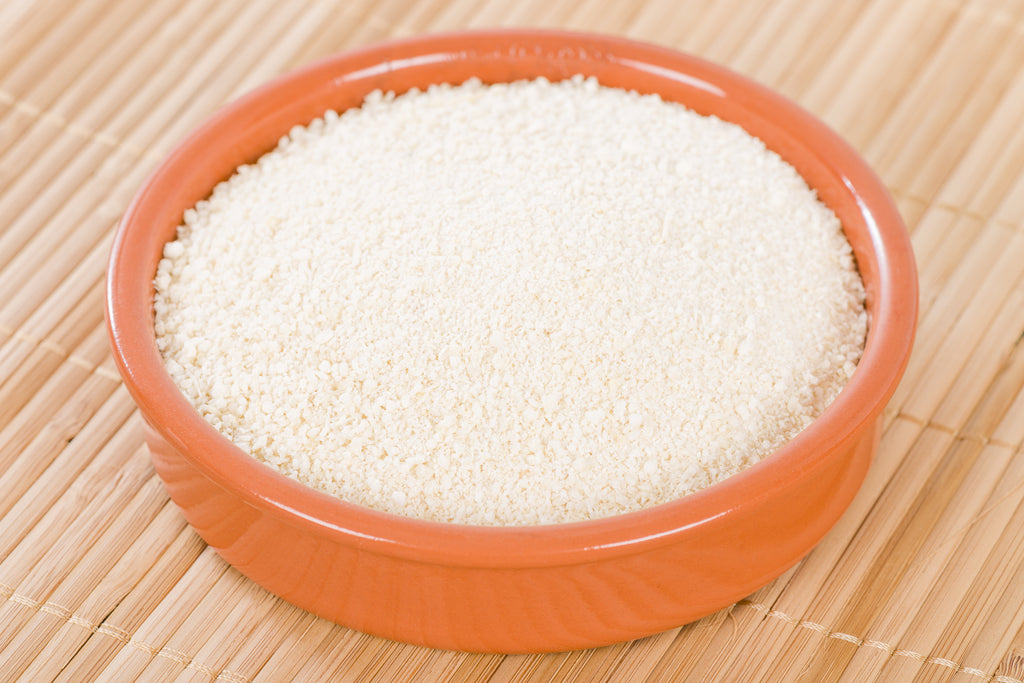
What is Garri Ijebu?
Garri Ijebu, colloquially known as "Garri," is a beloved staple in Nigeria, particularly revered by the Yoruba ethnic group. It is a coarse, granular flour made from cassava, a starchy tuber that is a mainstay in West African agriculture. What sets Garri Ijebu apart is its distinctive texture and slightly sour flavor, which are the hallmarks of the traditional fermentation process it undergoes during production.
The Origin of Garri Ijebu
The story of Garri Ijebu is deeply rooted in the annals of West African history. The journey begins with the introduction of cassava to the region by Portuguese traders in the 16th century. The crop quickly gained prominence due to its hardiness and versatility, thriving in the varied climates of West Africa. Over time, local communities honed the craft of transforming cassava into Garri, giving rise to distinct regional varieties, including the famed Garri Ijebu.
How Garri Ijebu is Made
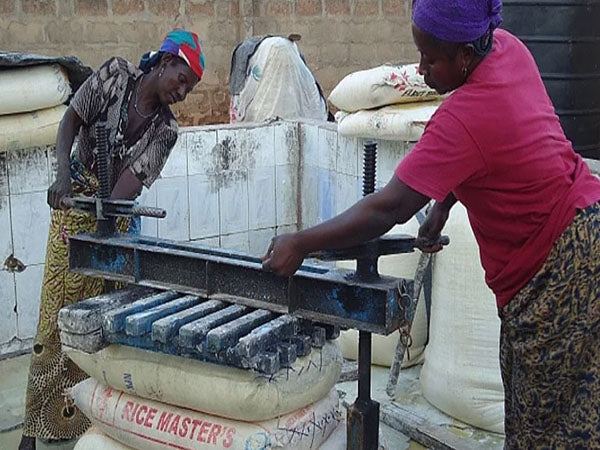
The creation of Garri Ijebu is a labor-intensive endeavor. The process starts with the selection of the finest mature cassava roots, which are then meticulously peeled, washed, and grated into a fine pulp. This pulp is left to ferment, often in woven baskets shrouded with banana leaves, where it undergoes a natural fermentation at the hands of microorganisms. This fermentation is crucial as it transforms the starches into sugars and acids, giving Garri Ijebu its unique flavor profile. Following fermentation, the wet pulp is carefully sieved to eliminate excess moisture and then sun-dried. It is thereafter fried in a hot frying pan till extremely dry resulting in the coarse granules that are the signature of Garri Ijebu.
Ways to Enjoy Garri Ijebu
Garri Ijebu is celebrated for its versatility in consumption, offering a variety of culinary experiences to suit any palate or occasion. Here are some of the most popular ways to enjoy Garri Ijebu:
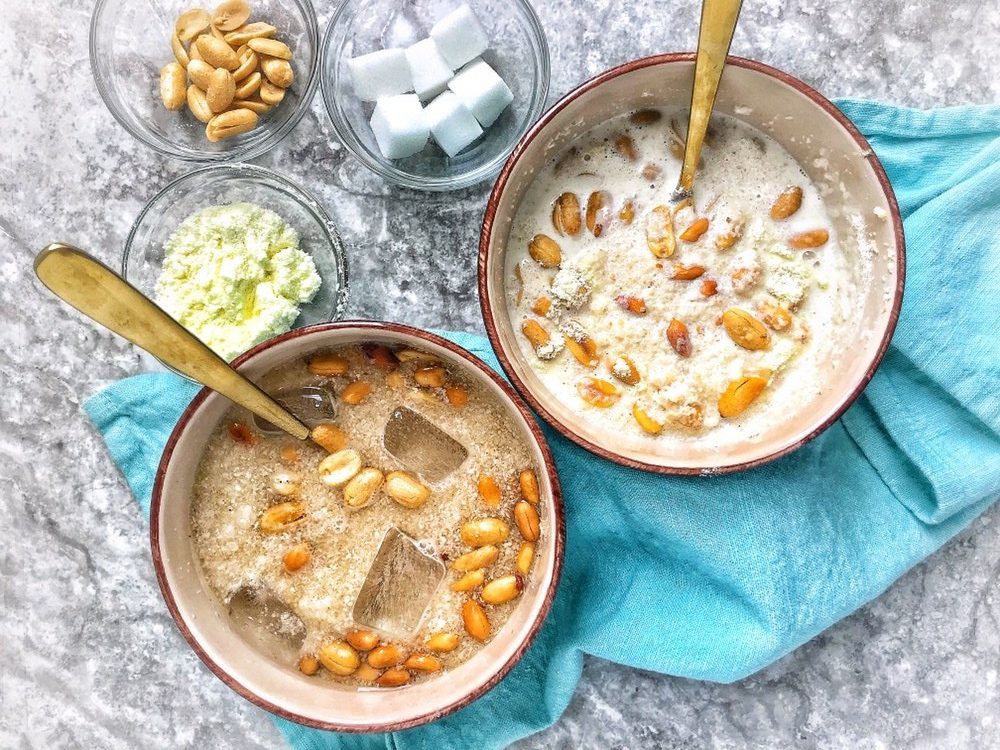
- Garri Soaking: Perhaps the simplest and most refreshing way to enjoy Garri Ijebu is to soak it. This method softens the granules, creating a thick concoction that you can enjoy in several ways:
- Classic Soak: Mix garri with cold water and enjoy its natural flavor.
- Sweetened Soak: Add a touch of sweetener (sugar or honey) to your garri-water mixture.
- Creamy Soak: Combine garri with milk for a richer experience.
- Crunchy Soak: Enhance your garri with chopped nuts and fresh fruits.
- Akara/Moinmoin: Pair garri with akara (bean cakes) or moinmoin for a hearty snack.
- Eba: For a more substantial meal, Garri Ijebu is transformed into Eba by mixing it with boiling water. This results in a smooth, dough-like substance that is the perfect companion to rich Nigerian soups and stews, offering a satisfying and filling base.
- Garri Snack: Dry Garri Ijebu serves as a crunchy, convenient snack that can be enjoyed plain or spiced up with various seasonings and condiments for an extra kick of flavor.
- Garri and Beans Porridge: Mix garri into a warm bean porridge for a comforting meal.
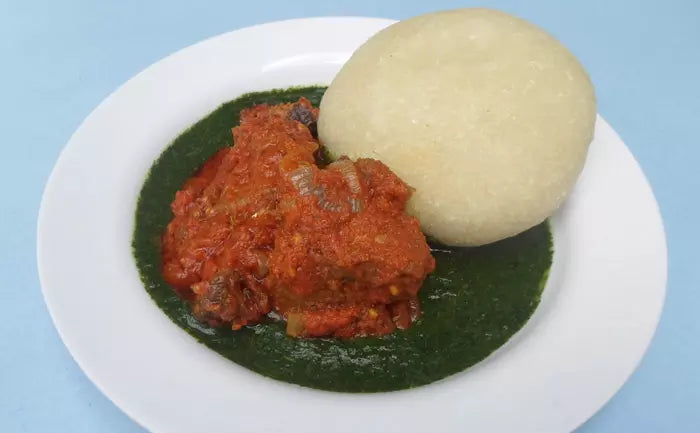
The Nutritional Benefits of Garri Ijebu
While Garri Ijebu is cherished for its cultural significance, it is also a powerhouse of nutrition. As a cassava derivative, it is an excellent source of carbohydrates, fueling the body with sustained energy. It is also packed with vital nutrients, including vitamin C, folate, and potassium. However, it's important to consume Garri Ijebu in moderation, as part of a balanced diet, to avoid potential health concerns such as obesity and diabetes.
Misconceptions about Garri Ijebu
While Garri is a source of nourishment for millions, it is often misunderstood and several myths distort its image. Here, let's set the record straight and shed light on the facts about this essential food.
1. Garri Ijebu is Unhealthy
A prevalent myth is that Garri Ijebu is not good for health, primarily because it is rich in carbohydrates. However, this is a misunderstanding of its nutritional value. Garri Ijebu, like any other food, can be part of a healthy diet when consumed in moderation. It provides energy and contains vitamins and minerals essential for health, such as vitamin C, which helps in fighting infections, folate, which is crucial for DNA synthesis and repair, and potassium, which is necessary for heart function and muscle contraction.
2. Garri Ijebu Causes Eye Problems
Another common belief is that Garri Ijebu consumption leads to eye problems, specifically due to its cyanide content. While cassava, the root from which Garri is made, does contain cyanogenic glycosides, which can produce cyanide, the processing of Garri Ijebu involves fermentation and drying that significantly reduce these compounds. Therefore, when Garri Ijebu is properly prepared, the cyanide levels are negligible and not harmful to health.
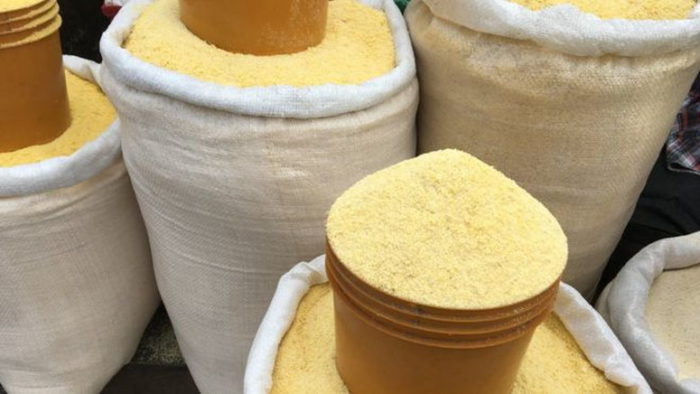
3. Garri Ijebu is a 'Poor Man's Food'
Garri Ijebu is sometimes labeled as a food for the economically disadvantaged, but this is a narrow view of its cultural significance. It is a versatile food enjoyed by people from all walks of life in Nigeria. Its affordability and accessibility do not diminish its value or worth. Garri Ijebu is a beloved part of Nigerian cuisine, cherished for its taste, convenience, and the way it brings people together.
4. Garri Ijebu is Not Filling
There's a notion that Garri Ijebu doesn't satiate hunger for long. On the contrary, Garri Ijebu has a high fiber content, especially when consumed as Eba, which can be quite filling and provide a slow release of energy, keeping one satisfied for an extended period.
Rounding Off:
Garri Ijebu really is the soul of our Nigerian kitchens. It's not just what we eat; it's part of who we are. Garri fits in for a quick snack or the main dish. It is simple our home in a bowl. It's the simple, everyday moments and the special, once-a-year celebrations that this humble food makes a little bit better. That's the magic of Garri Ijebu—it's our tradition, our comfort, and our joy, all rolled into one. Do not ever miss Garri Ijebu while you are abroad and home away from home! My Sasun African Market has the best Garri Ijebu, White and Yellow Garri to keep you connected to your roots if you are in the US or Canada. Start shopping with us today!



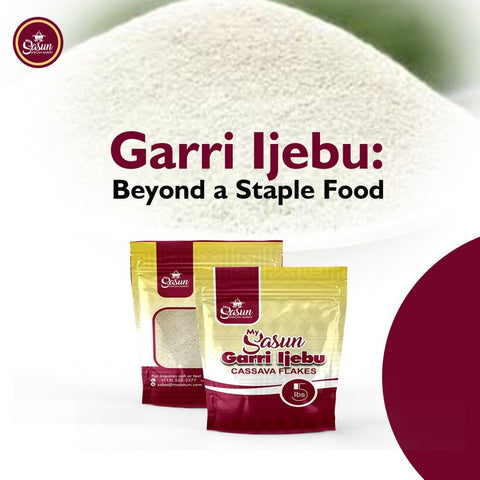



Comments (4)
Am here to let the whole world know that I was diagnose of herpes 3 years ago where all hope was lost and I had nothing to do about it,I just accepted the faith that one day I will cure of this disease and I just pray everyday for a helper and one day my sister introduce me to a herbal doctor man called Dr ahonsie that she saw him on internet well I contact him on his email,I was not fully convinced until he sent me the herbal medicine which he ask me to take for two weeks I took it with faith and i went for a retest in different hospitals and today am cured of this disease and am also using this medium to let all those having STD,like herpes and the rest not to give up,their is a man who can cure you,his name is Dr ahonsie . contact the great herbalist via his Email: drahonsie00@gmail.com / WhatsApp: +2348039482367. https://drahonsie002.wixsite.com/dr-ahonsie
Hello everyone, i have a very important information about herpes virus, i was a victim of hsv1&2 until i met doctor Ahonsie, it still feels like a dream to me. it has been two years now, i have not experience any breakout of herpes. I new about him through a post made on social media, a lady shares her experience and then i decided to contact him and ever since i contacted i was encourage and with no doubt i was cured from herpes simplex in just two weeks. He also treat other illnesses like HPV, HIV, CANCER, THYRIOD, PENIS ENLARGEMENT, and more contact him via Email: drahonsie00@gmail.com / WhatsApp: +2348039482367. https://drahonsie002.wixsite.com/dr-ahonsie https://www.facebook.com/drstellaherbalhome?mibextid=ZbWKwLThanks
I thought the physicians says there is no cure for HSV 2!!! I am telling you today that Dr ahonsie cure HSV 2 with his herbal medicine and once you get cured you are cured forever it is never reversible, I have been suffering for this deadly disease called h HSV 2 for more than a 2years and lost all hope because my doctor says there is no cure for HSV 2. Brethren I saw a testimony on the internet on how Dr ahonsie cure HSV, Hapatitis etc with his herbal medication and an email and watsapp to contact him was also displayed, I thought this was joke but I decided to contact him and he replied telling me not to worry that my problem is over . Dr ahonsie sent me a herbal medication to drink for one month but only 2weeks I feel strange and I went to my doctor and he confirmed me negative. He can help you too. Contact him drahonsie00@gmail.com or whatsapp +2348039482367 https://drahonsie002.wixsite.com/dr-ahonsie https://www.facebook.com/drstellaherbalhome?mibextid=ZbWKwL
My purpose out here today is to share this article to the world about how Doctor Odunga helped me in getting back my EX-boyfriend who broke up with me 4 months ago. I tried all I could to make him see reasons with me so that we can continue our relationship but he denied me. Thank God for giving me the thought of going into the internet for help, I searched properly and I saw different reviews of Doctor Odunga and I insisted on giving it a try by contacting him via what’s app on (+2348167159012). He gave me reason to live again and he prepared a spell and told me that my Ex-boyfriend will come back to me within 11 hours. Can you believe it, my EX-boyfriend came back to me, proposed to me and our wedding will be held soon. Contact him now!!! if you need any help. Email: odungaspelltemple@gmail.com and he does a lot of spells. Once again i want to say am very grateful for your help